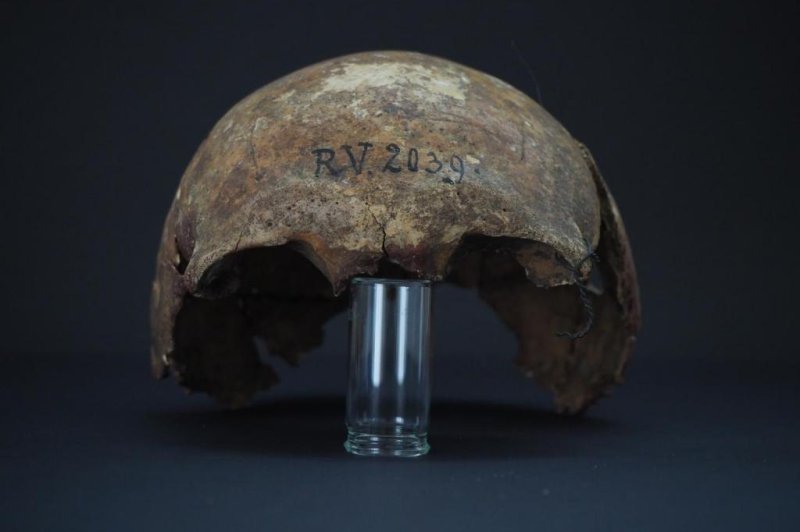
NASA astronaut Jessica Meir exercises in space in 2020, where doing laundry currently is impossible. Photo courtesy of NASA
ORLANDO, Fla., June 25 (UPI) -- A detergent maker and NASA are teaming up to research how astronauts could do laundry in space, especially on Deep Space missions, using minimal energy and water.
Procter & Gamble has signed a pact with NASA, known as a Space Act Agreement. Under the pact, NASA seeks laundry solutions in space, while the detergent, Tide, gains publicity and furthers product development. Both parties pay their own costs.
NASA wants to avoid shipping hundreds of pounds of clothing to astronauts, who wear them for a few days before discarding. The space agency eventually disposes of the worn clothing in a cargo spacecraft that burns up in the atmosphere, researcher Mark Sivik said in an interview.
"We can't continue to send out large quantities of garments, so we're researching ways to clean clothes more effectively," said Sivik, a staff scientist for Ohio-based Procter & Gamble. "NASA is asking, 'Are there ways to actually do laundry in space?'"
The company has taken on the project to gain knowledge and experience by testing potential new products in microgravity, Sivik said. Many firms pay NASA thousands of dollars to conduct such research in space.
Lack of gravity in space means water, clothes and soap don't behave the same as on Earth.
Since shipping water to the orbiting laboratory is expensive, water is recycled and conserved as a precious commodity, Sivik said. That would become nearly impossible on a long trip to Mars, which at a minimum is 34 million miles away.
Astronauts are required to exercise nearly two hours per day to offset the effects of microgravity on their muscles and bones, during which time their clothing gets sweaty, Sivik said.
The project will send to the space station in December a detergent that contains enzymes to break down dirt in clothes naturally -- to see how it behaves after six months in microgravity. Then, in May, a spacecraft will carry spot stain removal pens and wipes to determine their effectiveness in space.
At some point, the space agency hopes to test a washing machine in space, Sivik said.
"We've done a lot of development on the use of cold water and minimal water usage, and we're looking at using a machine that combines the washer and dryer in one unit," he said.
A laundry solution that uses less water in space could have benefits on Earth, as well, Mike Ewert, a NASA life support and thermal systems analyst, said in an email.
"Using less water in space is important for recycling reasons, and using less water on Earth is important as more areas become water stressed in the future," due to population growth and climate change, Ewert said.
Laundry machines for the surface of the moon or Mars may require only minimal alteration, while such machines may have to be drastically altered to function properly in microgravity, he said.
"A washer and dryer may be added to missions when the benefits, such as throwing away less clothing, outweigh the resources needed to clean them," Ewert said.











